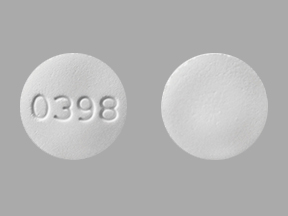
Arthrotec Coupons & Savings Card – Discount Prices from $44.87
Brand for: Diclofenac-misoprostol
My prescription
Edit
75-0.2MG, Diclofenac-misoprostol (60 Tablet Delayed Releases)
Select pharmacy

CVS
$44.87
COUPON PRICE
Walgreens
$54.72
COUPON PRICE
Walmart
$71.93
COUPON PRICE
Albertsons
$78.13
COUPON PRICEArthrotec savings card
Show this card to your pharmacist
CVS
$44.87
BIN
ID
PCN
GRP
019876
LHB6259DF4
CHIPPO
LHX
Powered by
More prescriptions for rheumatoid arthritis
More prescriptions for rheumatoid arthritis
Arthrotec (Diclofenac-misoprostol) dosage forms
Dosage Quantity Price from Per unit 50-0.2MG 30 Tablet Delayed Releases $27.98 $0.93 50-0.2MG 60 Tablet Delayed Releases $37.66 $0.63 50-0.2MG 90 Tablet Delayed Releases $55.34 $0.61 50-0.2MG 180 Tablet Delayed Releases $84.39 $0.47 50-0.2MG 270 Tablet Delayed Releases $113.43 $0.42 75-0.2MG 60 Tablet Delayed Releases $44.87 $0.75 75-0.2MG 30 Tablet Delayed Releases $31.58 $1.05 75-0.2MG 90 Tablet Delayed Releases $66.15 $0.73 75-0.2MG 120 Tablet Delayed Releases $79.44 $0.66 75-0.2MG 180 Tablet Delayed Releases $106.00 $0.59
| Dosage | Quantity | Price from | Per unit |
|---|---|---|---|
| 50-0.2MG | 30 Tablet Delayed Releases | $27.98 | $0.93 |
| 50-0.2MG | 60 Tablet Delayed Releases | $37.66 | $0.63 |
| 50-0.2MG | 90 Tablet Delayed Releases | $55.34 | $0.61 |
| 50-0.2MG | 180 Tablet Delayed Releases | $84.39 | $0.47 |
| 50-0.2MG | 270 Tablet Delayed Releases | $113.43 | $0.42 |
| 75-0.2MG | 60 Tablet Delayed Releases | $44.87 | $0.75 |
| 75-0.2MG | 30 Tablet Delayed Releases | $31.58 | $1.05 |
| 75-0.2MG | 90 Tablet Delayed Releases | $66.15 | $0.73 |
| 75-0.2MG | 120 Tablet Delayed Releases | $79.44 | $0.66 |
| 75-0.2MG | 180 Tablet Delayed Releases | $106.00 | $0.59 |
What is Arthrotec drug used for?
Arthrotec is used to relieve symptoms of osteoarthritis and rheumatoid arthritis in patients who are at risk of developing stomach ulcers. It combines diclofenac, a nonsteroidal anti-inflammatory drug (NSAID), with misoprostol, which helps protect the stomach lining.
Is Arthrotec the same as ibuprofen?
Arthrotec is not the same as ibuprofen. Arthrotec is a combination medication that contains diclofenac, a nonsteroidal anti-inflammatory drug (NSAID), and misoprostol, which helps protect the stomach lining. Ibuprofen is also an NSAID but does not contain misoprostol.
Who cannot take Arthrotec?
Arthrotec should not be taken by individuals who are allergic to diclofenac, misoprostol, or any other ingredients in the medication. It is also contraindicated in pregnant women, as it can cause harm to the fetus. Additionally, individuals with a history of gastrointestinal bleeding or ulcers, severe kidney or liver impairment, or those with a history of heart disease or stroke should avoid taking Arthrotec. It is important for patients to consult with their healthcare provider to determine if Arthrotec is safe for them.
Is Arthrotec a painkiller?
Arthrotec is a medication that combines diclofenac, a nonsteroidal anti-inflammatory drug (NSAID), with misoprostol. Diclofenac helps reduce pain and inflammation, making Arthrotec effective for managing pain associated with conditions like arthritis. However, it is not classified solely as a painkiller, as it also includes misoprostol to help protect the stomach lining from irritation caused by NSAIDs.
Does Arthrotec cause high blood pressure?
Arthrotec, which contains diclofenac and misoprostol, can potentially cause an increase in blood pressure as a side effect. Nonsteroidal anti-inflammatory drugs (NSAIDs) like diclofenac may lead to fluid retention and can elevate blood pressure in some individuals. It is important for patients to monitor their blood pressure regularly and consult their healthcare provider if they notice any significant changes.
